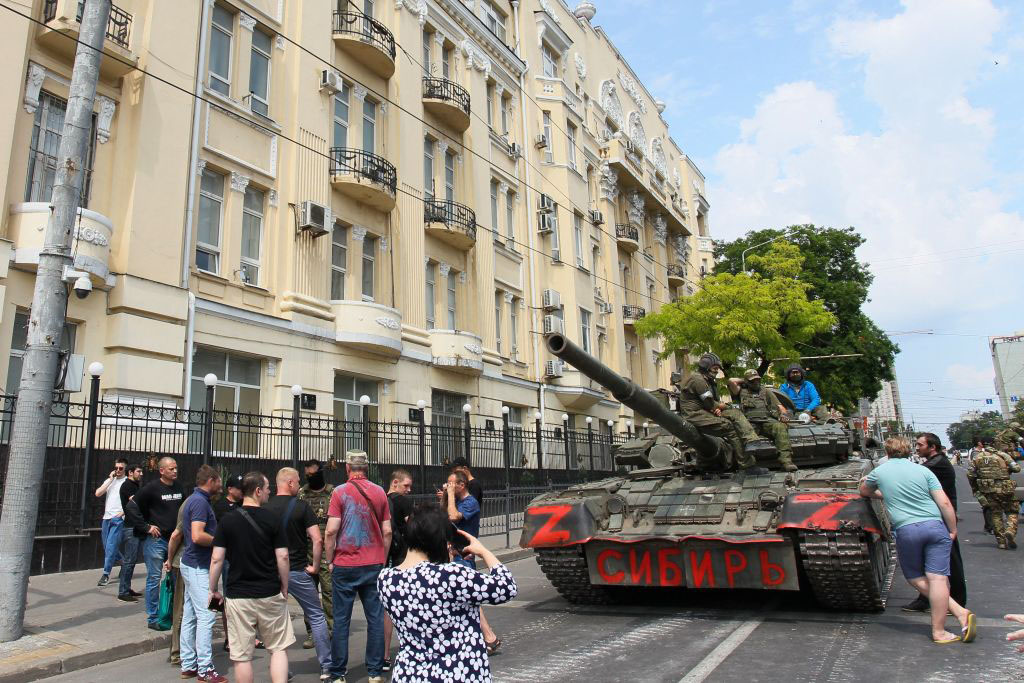ADF STAFF
As the dust settles after the 36-hour rebellion by Yevgeny Prigozhin’s Wagner Group against Vladimir Putin, some observers see parallels to fighting in Sudan.
Like Wagner, the Sudanese Rapid Support Forces (RSF) is a powerful paramilitary group that was funded and heavily armed by its government. Wagner and the RSF have each been accused of numerous human rights abuses.
Both groups refused to integrate with their country’s military. Each instead chose to turn against their governments.
Bakary Sembe, regional director at the Timbuktu Institute Africa Centre for Peace Studies, expects that African leaders will be more wary of using mercenaries and militias.
“They have to stop thinking about outsourcing their security,” he told Al-Jazeera. “It is not a viable strategy and now, regarding the new situation, African countries will be more careful when it comes to using Wagner.”
For the handful of African countries that have partnered with the Wagner Group, the mutinous march on Moscow underscored the dangers of working with paramilitary groups.
On June 26, British foreign secretary James Cleverly told parliament that he had spoken to leaders in African states that are using Wagner and suggested that they now would find their security “inherently vulnerable.”
Wagner mercenaries, he said, “are not people that can be trusted in any country whose defense relies upon them, as the Russians have now discovered.”
The world watched in shock on June 23 when Prigozhin led an armed convoy halfway to Moscow, reportedly intending to capture Russia’s defense minister and most senior military leader before backing down and negotiating a retreat to Belarus.
As it was in Sudan, the conflict escalated when the government insisted on absorbing the paramilitary fighters into the military.
While fighting in Ukraine, Wagner mercenaries faced a July 1 deadline to sign contracts with Russia’s ministry of defense, a move that would bring the mercenaries under official military control.
Prigozhin refused the order and chose armed rebellion.
“Prigozhin was driven to this by his understanding he was being driven into a corner,” Ruslan Pukhov, director of the Moscow-based Center for Analysis of Strategies and Technologies military think tank, told The Wall Street Journal newspaper.
“He simply didn’t want to sink into oblivion.”
In Sudan, rising tensions between the top two junta leaders — head of the armed forces Gen. Abdel-Fattah Burhan and the RSF leader, known as Hemedti — erupted into violence on April 15.
RSF fighters turned their weapons on the Sudanese Armed Forces over the central dispute of how to integrate the RSF into the military and which general would control the fighters and weapons.
As Sudan teeters on the brink of all-out civil war, the Wagner Group faces the possibility of a post-mutiny dissolution with its leader in exile.
The uncertainty has sent ripples of concern through parts of Africa, according to Charles Bouessel, International Crisis Group’s senior analyst on the Central African Republic (CAR).
“We have seen a little bit of stress from the authorities,” he told Al-Jazeera. “We see this kind of stress because they are not 100 percent sure what will happen, whether Wagner will survive in the next few months or not.”
Samual Ramani, an associate fellow at the Royal United Services Institute for Defence and Security Studies, said Wagner’s attempted coup portends hard times ahead for the mercenaries and for Russia in Africa.
“Without the steady supply of arms, it’s hard to see how that relationship continues,” he told VICE News. “Either way, whether they can stay in Mali and CAR, Wagner probably won’t be picking up any new clients.”
Some Malians quickly interpreted the Wagner Group’s mutiny as a cautionary tale.
“Even the Russian government doesn’t control them,” a Bamako resident told Deutsche Welle. “What are we supposed to do now? This shows that this army is not controllable. This is very dangerous for us.”

